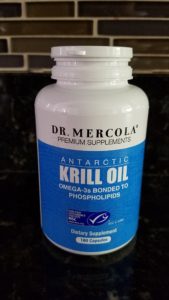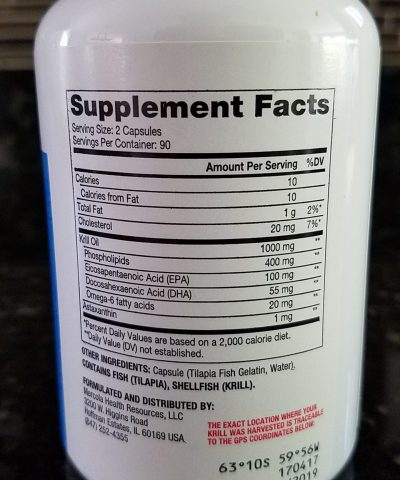
-Krill Oil is far superior to Fish Oil.
-Bound to phospholipids so it can cross the cell-membrane for optimal utilization.
-Contains astaxanthin, a powerful antioxidant.
-Helps to reach Omega-3 EPA/DHA needs from animal-based sources
(as opposed to Omega-3 ALA from plant-based sources).
-A high-quality Krill Oil should not leave a ‘fishy’ aftertaste.
-Should be certified by the Marine Stewardship Council (MSC) and only produced using Antarctic Krill.
(avoid Krill products that use Hexane)
-Typical dosage will be 300-1000mg/day and must be individualized.
–Timing: Best taken with food in the daytime. May cause indigestion if taken immediately before a workout.
-Supplementing with Krill Oil can be a wise health choice
to boost your Omega-3 levels, fight inflammation, and promote overall health.
-Since most larger fish are contaminated with mercury and heavy metals it can be safer
(and a lot more cost-effective) to supplement with Krill Oil instead of eating fish or using Fish Oil.
(The humble krill only measures about two inches in length)
Note: Krill Oil will break a fast if you are using an Intermittent Fasting Protocol.
It can be beneficial to take Krill Oil with your last meal of the day to offer more cell protection benefits throughout your sleep and morning fasting period.

*always consult your doctor prior to starting any supplementation.*
(especially if you have shellfish allergies, a blood clotting disorder, or are taking anticoagulants)
+it is a good habit to smell your supplements to be sure they are high quality (odorless).